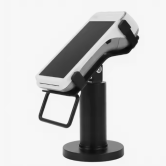- Your cart is empty Browse Shop
Understanding Merchant Service Provider Rates

In 2016 accepting credit and debit cards is a must. Consumers enjoy both the convenience and the security of buying with a credit card. With the recent introduction of Apple Pay and the popularity of contactless payments on the rise, businesses need to utilise every given sales avenue. On top of the potential to grow your business, accepting card payments also lowers the risk of fraud from accepting bad cheques.
Accepting payments via debit and credit cards can be costly if you’re not aware of the potential pitfuls. Processing fees associated with merchant accounts can be complicated and somewhat overwhelming to people who have little understanding of this sector.
Every business that accepts card payments pay fees, so rather than just accepting them, it maybe an idea to understand a little bit more about them in an effort to get a deal that will benefit your business in the long run.
In this blog we offer advice of what questions to ask and what to look out for giving the customer a better understanding of what they’re commiting too.
- Set up fees – Most acquirers charge a set up fee. This fee covers the cost of setting up the account. Some merchant banks will charge more than others, so ask this question and get this in writing when making the initial enquiry.
- Minimum monthly service charge (MMSC) – This fee refers to the minimum amount you must process through the merchant account in transactions in order to meet the minimum monthly spend. Figures differ with each acquirer and can range from £15-£30. If you do not meet or exceed your monthly minimum, the merchant account provider will charge you the difference in cost to satisfy the monthly minimum. It is particularly important to factor this cost in if you are a seasonal business and only operate for 5-6 months a year.
- Cancellation Fee – Some merchant agreements can be on a fixed term agreement at the time of opening the account. If a company opts for early termination on the account, a fee will apply. Ask this at the time of making the initial enquiry and factor this cost into the future of your business. As a business, your model may change over time where you no longer need to accept payments via debit and credit cards (opt for wholesale or trade partners only).
- Annual charge – This is a fee paid once a year to the merchant acquirer/ISO for the maintanence of the account. We can’t quote prices for this as every acquirer offer different pricing structures.
- Transaction fee’s – Sometimes referred to as MSC (merchant service charges). This is a fixed amount deducted per successful card transaction. This will all be explained in the initial quote. It isn’t possible to provide facts and figures on a pricing structure as this solely dependent on the nature of the applicant’s buisiness and how it operates. For example you wouldn’t be able to compare an independant hair dresser who takes payment face to face to a tour operator who takes deposits over the phone or by mail order six months in advance. Every applicatant is different. If you are unsure on whether you have been given a good quote, our advice is to shop around. The more companies you speak too, the greater understanding you will have and in turn you will actively start becoming more assured and this will be reflected in the tone of the people you are speaking too. Having set MSC can be beneficial as this enables merchants to easily track their card processing costs and budget for these fees.
- American Express sometimes referred to as AMEX is an separate account that can be set up at the time of the initial merchant account application. Different fees apply and are subject to a valid Amex merchant agreement.
- Chargeback – A chargeback is when a transaction you have initially received payment for is then subsequently rejected by the cardholder or issuer and debited back from you. You will recieve a letter from your merchant provider and given 14 days to respond to it and provide relevant proof and information.
If you would like any more advice on the above please do not hesitate to call a representative who will be able to offer imparitial advice.




